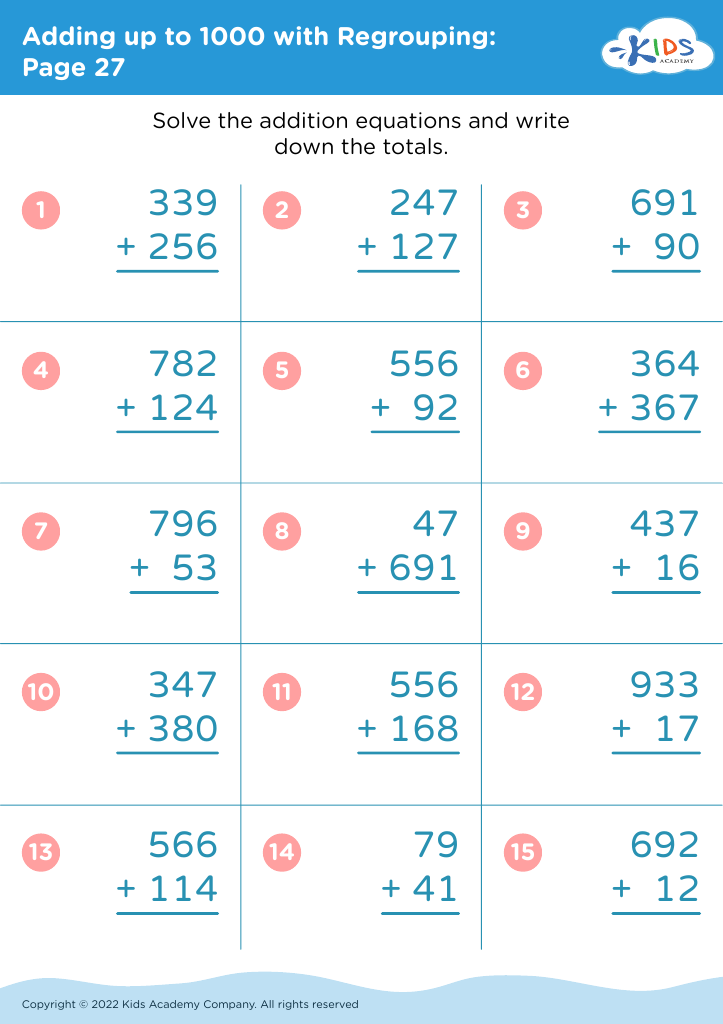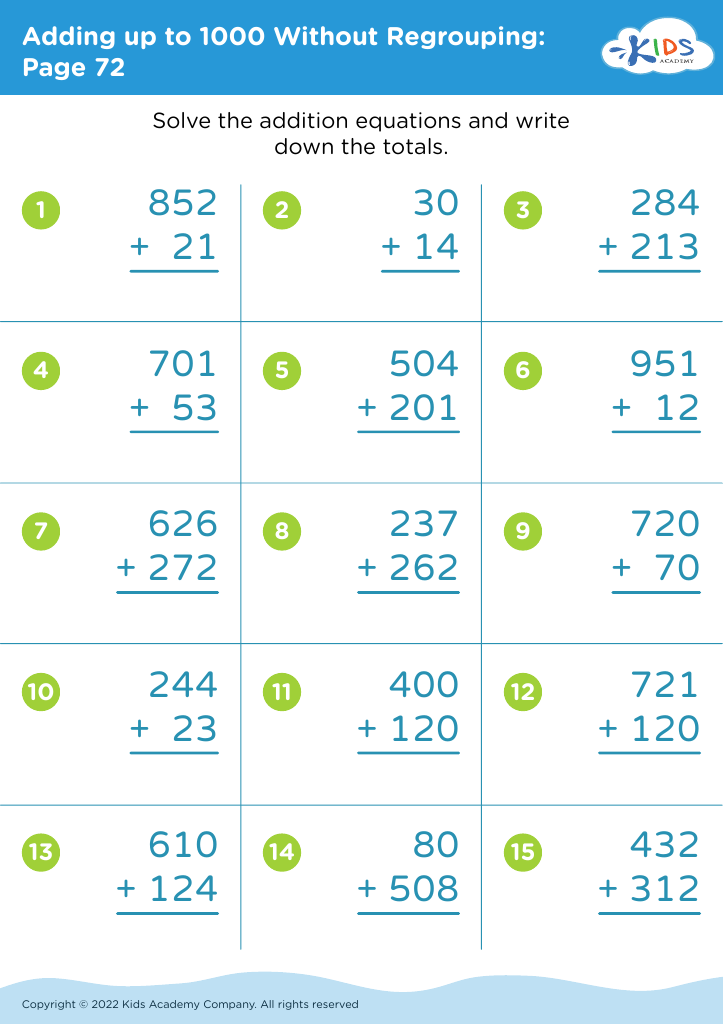Learn new vocabulary Adding up to 1000 Worksheets for Ages 3-7
3 filtered results
-
From - To
Boost your child's vocabulary while enhancing their math skills with our comprehensive collection of 1000 worksheets designed for ages 3-7. Focusing on learning new vocabulary, these worksheets introduce kids to essential mathematical terms and concepts through engaging activities. From counting and number recognition to basic addition and subtraction, each worksheet is crafted to encourage language development alongside numerical understanding. Each activity is designed to make learning fun and interactive, ensuring that children grasp key concepts while experimenting with words. Watch as your child grows more confident in both math and language with our carefully curated resources tailored for early learners.
Learning new vocabulary is crucial for children aged 3-7 for several reasons. At this early stage, children's brains are exceptionally receptive to language, and expanding their vocabulary directly impacts their cognitive development. A rich vocabulary enhances comprehension skills and supports effective communication, vital for success in both academic settings and social interactions.
When parents and teachers prioritize vocabulary development, they lay the foundation for reading and writing proficiency. A solid vocabulary not only aids in understanding texts but also allows children to express their thoughts and feelings more clearly. This is especially important during formative years when emotional expression and social skills are developing.
Moreover, introducing new words is an opportunity for creative play and exploration. Activities that incorporate new vocabulary in fun ways—through storytelling, singing, or interactive games—encourage a love for learning and curiosity about the world.
Additionally, vocabulary development fosters critical thinking. Children learn to make connections between words and concepts, resulting in enhanced problem-solving skills. By investing in vocabulary growth, parents and teachers equip children with the tools they need for lifelong learning and success, advocating for their confidence and ability to engage meaningfully with their environment.















